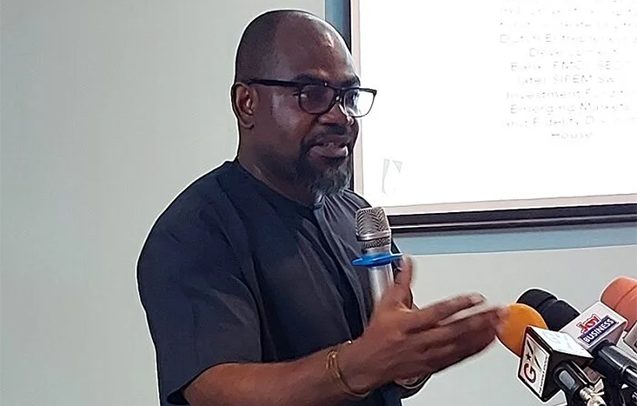Percival Ofori Ampomah
The Venture Capital Trust Fund (VCTF) is calling for a review of existing legislation to facilitate easier access to equity funding for small and medium-sized enterprises (SMEs) in the country.
General Manager, Percival Ofori Ampomah said such a reform would financially empower SMEs, which serve as the backbone of the Ghanaian economy.
Speaking at a media breakfast meeting commemorating VCTF’s 20th anniversary, Mr. Ampomah noted that the current framework under the Venture Capital Trust Fund Act (Act 680) of 2004 does not provide for a reliable, continuous flow of funds for SMEs.
This limitation, he said, hinders the Fund’s ability to meet the growing financial needs of SMEs through its equity and quasi-equity investments.
“Venture capital itself is established by an Act of Parliament, but certain aspects of the legislation impede our work as venture capitalists. Over the next few years, we aim to remove these obstacles,” Ampomah explained.
“The Act must be reviewed, especially clause 3, which lists the sources of funding for the Trust Fund. After 20 years, this list needs updating—particularly because the national reconstruction levy, which was once a source, has since been repealed but remains in the law,” he stated further.
According to him, currently, many Ghanaian SMEs face challenges in accessing affordable capital, often relying on high-interest loans from traditional financial institutions.
He said equity financing from the VCTF offers a more flexible, growth-oriented alternative, yet the lack of sustained funding limits the Fund’s impact on the SME sector.
He indicated that the proposed review of the VCTF Act aligns with broader government efforts to support private sector development and promote job creation.
Mr. Ampomah disclosed that Parliament is expected to consider the proposal in the coming months, with stakeholders hopeful about the potential for transformative changes.
If successful, the reform could position the VCTF as a major catalyst for SME growth, enabling businesses to scale, create jobs, and contribute significantly to Ghana’s economic transformation, he said.
“This is a priority for us: to update the Act in line with current needs and to advocate for a more permanent funding source. Such changes would ensure the continuity of our work,” Mr. Ampomah added.
Business Desk Report


